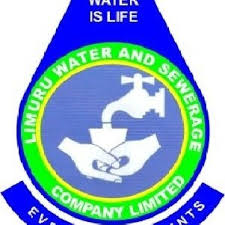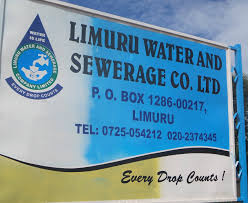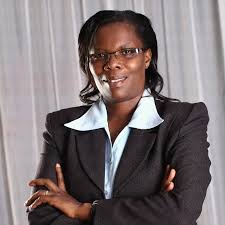

Mrs Margaret Maina https://www.linkedin.com/in/margaret-maina-906b7a68/, was Managing Director of Limuru Water and Sewerage Corporation, in Kenya, a position she held for 18 years retiring July 2024. She has extensive experience in the Water Sector, including positions in the Ministry of Water Development in Kenya and various Water Agencies. Professionally, she is a Water Chemist with a Bachelor of Philosophy in Technology (Applied Biology) from the Technical University of Kenya. Margaret also holds a master’s degree in public health with a focus on Epidemiology and Disease Control from Kenyatta University.
She actively contributes to the water sector through various committees and associations, such as the Water Sector Advisory Committee and Women In Water and Sanitation Association (WIWAS). Margaret is committed to enhancing water services in Kenya and beyond.
In this interview with Dr Babatope Babalobi, she spoke on her career in the water and sanitation sector, including on how she was able to survive what she described as ‘hydro politics’ and remained a water utility MD for 18 years.
I read online that you have spent 18 years as the Managing Director of Limuru Water and Sewerage. How were you able to keep your job for such a long time?
18 years has been a long time, our company was formed on the 10th of March 2006, this was occasioned by the Water sector reforms that we had in Kenya in 2002 which created a separation of powers from the ministry. It made the Water Development Boards (WDB) and then the Water companies where we are, we call them ‘Kenya Water Service providers,. I am the founding Managing Director.
I have served on four different Boards of Directors, and I think I have been a bit more professional. I also had the confidence of the staff that we have built over time, and we have always been working as a team. So, we created a family which they looked at as like they looked at me as part of their mom because all of them had been deployed through my regime.
So, it has not been easy, but I have managed to navigate, and more so through the grace of God. It is not about me.
How are you able to manage politicians, the Board of Directors, the legislators, the civil society and consumers?
First, we have a regulatory regime that was created for the water companies and the water sector where they have corporate guidelines for the appointment of Directors. The shareholder is the county.
What happens in Kenya is that we have 47 regional governments; We call them county governments. So, my Company is one of Adakiabu County where we have other 7 sister Companies.
So, you can imagine we have 8 water companies in the region, although it is also one the biggest counties in Central Kenya, and I think it is next to Nairobi in terms of population.
So, the utility was formed under the Company’s act as a private entity, but the shareholder is the county. So, when there is a change in the leadership of the county, in terms of the mayor and the councillors who are part of the board, that is the time that somebody is required to navigate through that politics.
I am not political, so this has helped me a lot because I do not follow this side or the other side of the political bargain. I have been as neutral as possible, and it has helped me to navigate through the boardrooms.
The appointment of the board is as per the guidance we have been given by our regulator, and our regulator is called the Water Services Regulatory Board (WASREB). They have put regulations for the appointment of directors in all the companies in the country, starting from the small water company, there is a number which includes large and very large. So different directors are supposed to be appointed, and the appointment of directors is a stakeholder appointment, it is not that of an individual. It must be appointed by either the customers or a professional body. The local authority has 2 slots like that. So, you are dealing with institutions that bring in the directors, and they change with time.
So that is how I have had very good relationships with the directors who are appointed at one point in time they elect their board share. So, the board share is elected by the directors after they have been appointed and again, the director’s term is 2 terms where the director retires after 3 years on a rotation basis.
That is how I have been navigating, but more so. It is by the grace of God.
Were you operating under a performance contract?
Yeah, we have been put on a performance contract right now. The rules have changed now, and the managing director can serve for 3 years twice. So, you can go to a maximum of 6 or 9, depending on your performance with the time we are involved in our democratic space and governance issues.
I am leaving this month (July 2024). This is my last month, and I am also feeling I have overstayed; I need to venture.
 So, what lessons can we learn from your utility, how does your board work and how are you able to cope with some of their interest which may be against their integrity?
So, what lessons can we learn from your utility, how does your board work and how are you able to cope with some of their interest which may be against their integrity?
Okay. Once the directors are appointed, they have to go through an induction so that they can know their roles. They must sign a code of ethics. They are not supposed to trade with the company and that one has helped in the way we are doing things. They are also monitored by the regulator because there is a calendar of meetings. We hold one meeting per quarter. So, in a year, we are going to have 4 board meetings and then they work under the board committees. We have a committee; one must be for audit, one from the finance and administration, and we have the technical committee.
The committees meet before the Board, and they are the ones who present the issues they have discussed within the committee at the Board level, and then every year, there is a rotation of directors. So, they are paid a seating allowance as they attend meetings, but they cannot pass 2% of the administration cost of the company. So, their regulations are the guidance that has been put by the regulator, which must be adhered to before the company is given a license to operate by the regulator.
We are licensed by the regulator, they are the ones who control the tariff, and even within the tariff; they also check how much the directors have used in their seating allowances, which has to be approved by the board, and they take responsibility so that one removes a lot of trading ends because the board members must be accountable, and they are also on performance.
If the company is not performing well, it can be removed, and that one has created harmony between the directors, the management, and those of the staff. They are not even supposed to interfere with the members of staff.
They are only supposed to work with the MD, the management team, and then the management team to work with the staff issues. So that one has helped a lot, and they cannot trade. If there is anything, maybe you have a company, you must go through a period of conflict of interest. You must declare that there is a conflict because of ABCD. They are also stakeholders represented, and they can be removed anytime, they also have to preserve the image of the appointing authorities.
What will you say have been your major achievements for the past 18 years in times of key performance operator of utility in terms of coverage, production, billing efficiency, collection efficiency, customer service and all the other key performance operators?
As I said, I have just given our historical background when the companies were formed, they took over the infrastructure that was being managed by the Ministry of Water, which was managing water in the rural areas. We have the municipalities who are licensed as water undertakers, and they are the ones who manage water in the towns.
Then, in 1992, the Government created a national corporation, the National Water, Conservation and Pipeline Cooperation which was managing water in other towns except Nairobi City, at least 4 cities. So, it was managing water as a parastatal. So, what necessitated the sector reforms was that when the county and the local authorities were operating, the county governments were operating, and they were mixing the revenue from water and the markets, they were all going to one place.
So, the essence of the sector reforms was to ring-fence the revenues collected from water so that they could not be used in other activities of the county, and that is why they formed the dependent companies.
So, when I took over, I took over the activities of the Ministry of Water with the staff. There was other stuff from National Water. First, I had to deal with the cash, and people were fearing the sector reforms. You collect revenues, you have to pay your salaries, you have to pay for customer needs, and you have to buy your pipelines, pipes, and everything else because you do not get money from the Government. So that was a big issue that we had to navigate to know how to improve efficiency. So, one of the areas was to improve on non-revenue water because when it is the government, nobody cares, even if the water lands the pipe is running for 24 hours or 3 days, so if the salary is being paid from elsewhere, there was no motivation. So, one of the things was to collect non-revenue water and talk to the staff.
So, at that time, when I started, we had 500 connections where only 300 were active and I also was not sure of our sustainability, and how my salary was to be paid. But little by little we managed to increase our coverage as much as we were reducing the non-revenue water. We had also to put technical staff, now we had to put an accountant, we had to separate the roles and we had a commercial so that we separate the roles of collecting the revenue and spending. So, for the up. By the time by now, we have 8 added connections out of the 500 and our revenue has also increased many times. We are collecting about 17 million Kenya shillings and so, I have seen it has been gradual.
We have completed and finalized three strategic plans of how we were to achieve most of our regulated key performance indicators. You can check on us at WASREB website, where you will find the impact report.
Okay.
Now we have grown. We started from a small company, we are in a large company, and I think we are number 12 in the large company and 28th overall out of over 100 water companies in Kenya.
Our collection efficiency, as of now is 95%.
Of course, we have some areas that we need to do. We have also been impacted negatively, more by climate change. We have been like this for the last 2 years. Our source is most of them dried. We are also grappling with high electricity costs because we are using boreholes, and our electricity is very expensive. So, as, our revenue goes to pay for electricity, we are sustainable. We can pay our staff salaries, we started with 13 and now, we are at 87. We can pay their salaries, their needs and their pensions. So, we are sustainable and able to do different projects of our own.
Are you still receiving funds from the county for some capital projects?
For the major projects like the sewerage treatment plant we have just completed, what is expected is that we have a strategic plan that we worked with the county, because in Kenya now, water is a devolved function, which is a function of the county government. So, they are supposed to facilitate or subsidize where possible.
Water has a lot of politics, I call it hydro-politics.
Our councillors, members of the county assembly in their words used that as their campaign tools. They would say, they are going to bring water, they going to do this and all. So, they set aside a budget, but mostly it goes to the community water projects. But for the last 2 years, I have seen the county government also increasing some grants in terms of pipes to the water utilities.
The capital-intensive projects are done by the National government through the waterworks and development agencies, and 8 of them get the projects through different funding agencies. Once the project is complete, it is handed over to the water companies for management. So that is how it works. But we are also doing our capital projects through the budget. We have to use 35% of our revenue to do some projects, and we have done them. That is how we operate.
What has been your experience in combining water supply and sewerage service delivery functions?
I think it is historical, based on or throughout my career, the water and the sewer systems, even when they were in the District Water office through the government, it was one component of the Ministry of Water and the same under the local authorities. The water department was also the one that was managing the sewerage system.
So, there are 2 components because, for every cubic litre of water, 75 go into waste. So, you have to take care of that waste through the sewerage system, and we charge. So, when we bill our customer, then we see, like in our company, we charge 75 per cent of the water bills for sewerage because you have to do maintenance, and you have to pay the staff, and the professionals that will work on it. So, they are always in the company, we have staff who are trained in wastewater, we have staff who are trained as water operators, and we have staff trained as water operators. So, everybody knows where they wake up in the morning and go.
And then we have the department, which is taking care of the wastewater department, as we have a commercial department, finance department and the technical department in charge of water and wastewater. So, it is easy, and sewerage has been neglected for a long time and the government is now taking it seriously. We have a lot of projects now in the country that are being done, especially through the African Development Bank funding and the World Bank which have to be managed professionally.
So, I do not know what happens in Nigeria if they are still left under the municipality, how do you collect the revenue and how do you do your operation and maintenance?
What exactly does your company do in terms of sewerage services? Is it provision, regulation, or policy formulation?
Most of it is, I think, the whole of issues of sewer systems in Africa is the same because the capital intensive in construction, and they require a lot of funding which has not been coming through.
So even, we have on-site sanitation, especially in uncovered areas where we have septic tanks, pit latrines and the like. As a water Utility, what we do is that we work with the private sector that is managing the exhauster services. So, we have. We have constructed for them a dumping site where they come and dump of course we need. We are now.
Our sanitation has not been taken seriously in many countries until 5 years ago. This is where now even our government is putting in place some regulations of collection and dumping because most people have been dumping in the environment, in the rivers and polluting our rivers. So, the Water Company and the service providers are registered through the National Environmental Management Authority (NEMA). That is also the public health aspect, they have to be licensed by the municipality, and then they have to show where they are dumping. So, there is a fee for dumping which has been created through a tariff and you only take the municipal, the one from the households, not from the industries.
So, the sanitation aspect in Kenya also, like in many other countries, has been part of the Ministry of Health and the Public Health Department. They are the ones who have dealt with the toilets. But now it is being domiciled in the Ministry, and all the stakeholders working in the Ministry of Health, Ministry of the Counties, and are working together to have a way forward on how to deal with the sanitation issue because there is open defecation in some areas the companies only have to deal with the seaward. However, we are now looking for non-sewered sanitation and also looking at groups of like estates where they can have a common treatment facility where the wastewater can be collected for treatment in the treatment plants that are nearby.
So that is how we have been doing, but for us, it is just normal operation and maintenance of the staff. We can connect new buildings that are coming, it is just a routine job like the water section.
So, that is how we do the wastewater, of course, we are now working with the communities in underserved areas, and we are discussing the alternatives and giving them that especially the pit empty, as the ones who are using tracks. We are also training them on how they can do it professionally without hurting the environment.
What advice will you give to young female professionals who are also going to read this interview to navigate their careers in the water sector, especially women and girls
Yeah. First, so I want to say that I am a founder member of Women in Water and Sanitation, Kenya, an organization we started in 2016, because, as you see, the water sector is highly technical.
So, you find very few women technical women taking up their space. It has been a rough journey since I was employed, of course, even as an MD. Out of them, we have over a hundred and twelve water utilities and only 5 are managed by women. so, you can imagine how that discrepancy! However, we are trying to encourage women to take their space.
I know there are many challenges women have to deal with, especially for women. When I came on board as a young water chemist, and you go to the field, you find that even the treatment plans did not have toilets for the ladies, and you have to navigate.
You have to walk with the men, understand them and they have to understand you, but I have learned that men are my biggest supporters. Once they get confidence in you, they mentor you well
So, I would want to encourage them not to be, not to be cowards, and not to be intimidated. I have always taken men as my colleagues and then we have discussed issues as colleagues.
Just the way I have been talking to the women and men are very open and very supportive, by the way, especially they want to protect the women in the sector, because since the technical ones are very few. However, as women, we are left to remain wise, you know, it might be in a normal meeting, and then somebody asks a question, and you take it personally. I have learned that whatever happens, whenever, whether in the meeting, I should not take it personally to see that as if that was directed to me because I am a woman, and it takes time for you to deal with it because women sometimes also have to go back and start thinking about what happened in that meeting. It is easier to navigate if you do not take things very personally.
The other issue is that I have learned that women have to work as twice a s hard as men, especially when we are in the office of responsibility because any mistake will be used against us. So, I have managed to research before I come. If I have an assignment, I will do a lot of research, and that one has helped women even to do better jobs.
I know women, also aspire to read more even to graduate and study many courses, just to make sure that they are on the path with our men because we want to compare ourselves, but we are different, and we intend to do things differently.
So, what I would advise them is that it is a very interesting area, keep to your reign. Do not be intimidated and give a respectable distance. You will not believe it when I go with my many colleagues, you know there is that stereotype that every woman with a man is either a wife or a friend.
Even when you go to the hotels, for instance, I could go to a hotel with my colleague, we will go to the reception because we were attending a workshop, they are being given rooms and I just left because somebody thought that I was escorting one of them.
So, that is something I have to deal with, and previously it used to. I used to get hurt when I was younger, but now I confront it and tell them, why are you not giving me my room? They expect that women working with men are accompanying them. So those are issues trying to be dealt with, but I have learned it.
When you bring women together, you can discuss your issues and mentor each other. Mentorship is very important for women because there are experiences you have that men do not experience. Men are usually buddies. I could see, even in the boardrooms. The moment you finish the meeting men will just go and start having lunch. They can even go for dinner and start discussing their things.
But women, once we are done with the office, you go straight to your family to do other things. Sometimes you may find that they did other meetings behind your back, but it is good to confront the issue as it comes, so I want to encourage them to navigate, and take your space because you are qualified for that space just like a young man was.
They were your classmates. So, take your office.
Do not look for favours because I know women also like looking for favours, there is no shortcut. If you want to work hard, work hard, respect yourself and get what is right for you, you will find it easy to navigate.
That is what I can tell them, but it is as a young water professional, I am also a member of the African Water Association in the Council. Join those associations even as an individual member, because you will meet with others, with your colleagues, and you can mentor each other.
I have also learned to give out to society and start mentoring kids who are even in schools so that they also appreciate the sciences which will lead them to a water career, so that one is also important. If you are employing a plumber, you find that there are no women who are plumbers, so we need to encourage them even to go to vocational training for those technical jobs. We encourage them to be operators and then in the office we make their work easier, providing them the friendly tools, so that they can also feel comfortable in the office as they join this highly technical sector that, 85% of the technical staff are men. That is what I would say.
Is there any last comment you want to make any last remark for the Global and Nigerian WASH community?
Yes, I am happy that there is a lot of interest that has been taken in by the water fraternity, especially in the sanitation space. It has been difficult even for the regulator to understand how they can create guidelines for safely managed sanitation, but I know now they are talking through the different associations in Africa and the world because women are the ones who carry the burden of poor sanitation through the diseases as they are the ones who give care to the family when they are sick.
So the role of women can be enhanced when you have safely managed sanitation at whatever space, whether it is in the water utilities or the in the rural areas, and also help women also to speak their voices even at the rural areas because when the water is expensive, they are the ones who go to look for alternatives.
So, it is important empowering women at all levels, whether at the consumer level, or the workforce level, so that we understand they understand their rights, and they understand also the remedies available even for those who are off-site, and either for water or sanitation.
The water sector reforms in Kenya have worked since we separated the roles.
The role of the Ministry is now to give policy direction and then we have the development agencies who give loans for developin the water utilities which are now classified through the credit rating We can get also loans from commercial banks in Kenya to do other projects, and that has made the water utility sustainable.
So, when the reforms are done with honesty, it works. I have seen it working in Kenya. It has created this scene because the license is given by the regulator, and if you do not meet the license conditions, whether it is governance, operation, and maintenance or the Key Peformance Indicator (KPIs) that you have been given, that license can be revoked. So, it brings discipline, and I know, even in Nigeria it can work so that you do not have the board members who are also supplying toilet paper.
It can be said even to the integrity of the Board.
My chairman has been very clear, because once we have new Board members during inductions, he tells them, if you never made your money where you are, do not think you are coming to make your money here. After all, there is no room for trading with the company, and the moment you start trading the company as a director, even the MD will also start trading the company, and then the company will fall, and it is the customer who is going to suffer so.
There is a lot of improvement, but I am happy of what it has changed the sector in Kenya when the government was the one providing service, it was still the regulating, there were a lot of inefficiencies.
That is what I can say.
We want to thank you, MD for finding time to share your valuable experience, it has been an insightful experience.
Leave a Reply